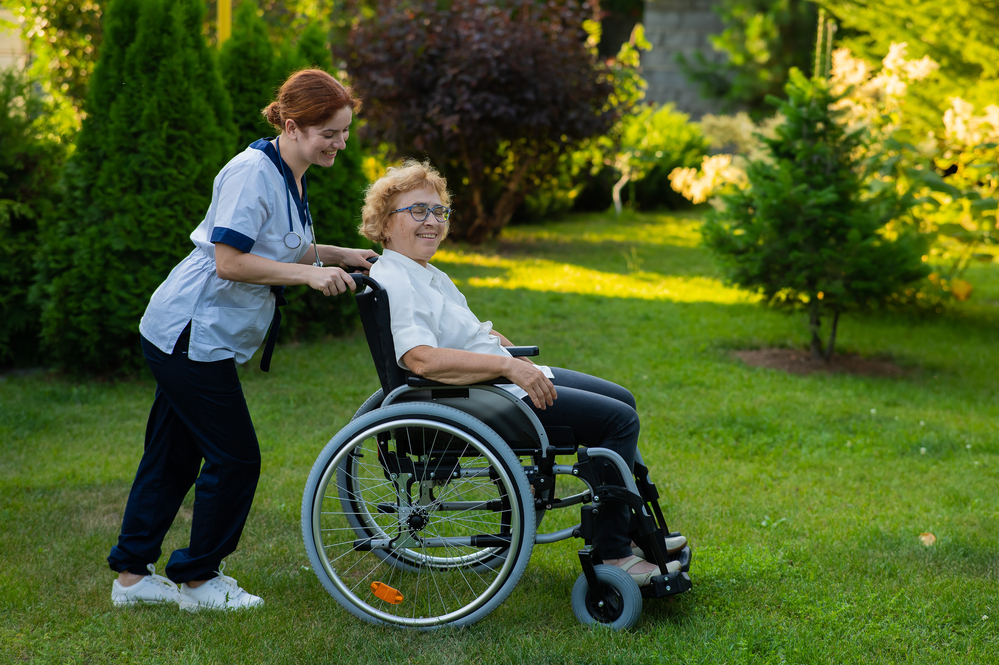
The Role of Respite Care in Senior Caregiving: How to Take a Break and Recharge
June 10, 2023
5 Benefits of Occupational Therapy in Rehabilitative Care
August 24, 2023Dementia is a progressive and debilitating condition affecting millions of people worldwide, and its prevalence increases as the population ages. Seniors with dementia face numerous challenges, including communication difficulties, confusion, memory loss, and difficulty performing daily tasks. As caregivers, it is crucial to understand these challenges and develop effective strategies to support seniors with dementia.
In this article, we will discuss strategies for communication and care that can help improve the quality of life for seniors with dementia.
Communication Strategies for Seniors with Dementia
One of the most significant challenges for seniors with dementia is communication. As dementia progresses, seniors may experience difficulty finding the right words, expressing their thoughts, and understanding what others are saying. This can lead to frustration, anxiety, and social isolation. Here are some communication strategies that can help:
Use Simple and Clear Language
Seniors with dementia may have difficulty processing complex language and abstract concepts. Therefore, using simple and straightforward language when communicating with them is essential. Use short sentences, speak slowly, and avoid using jargon, metaphors, and figures of speech. Use visual aids, such as pictures, diagrams, or gestures, to support your communication.
Listen with Empathy and Patience
Seniors with dementia may take longer to process information and respond to questions. Therefore, it is important to listen to them with empathy and patience. Avoid interrupting, finishing their sentences, or rushing them. Give them enough time to express themselves and try to understand their perspective.
Provide Positive Reinforcement
Seniors with dementia may forget what they have said or done, leading to frustration and anxiety. Providing positive reinforcement can help boost their confidence and self-esteem. Praise their efforts, acknowledge their feelings, and offer support and encouragement.
Avoid Arguing or Correcting
Seniors with dementia may have distorted memories or perceptions of reality, leading to confusion and disorientation. Avoid arguing or correcting them, as this may cause them to feel frustrated or upset. Instead, validate their feelings and try to redirect their attention to a positive topic or activity.
Care Strategies for Seniors with Dementia

In addition to communication strategies, caregivers of seniors with dementia must provide appropriate care to help them maintain their physical and emotional well-being. Here are some care strategies that can help:
Establish a Routine
Seniors with dementia may have difficulty remembering what they need to do or when they need to do it. Establishing a routine can help them feel more secure and confident. Create a daily schedule that includes meals, activities, and rest time. Display the schedule in a visible place and stick to it as much as possible.
Provide a Safe and Comfortable Environment
Seniors with dementia may experience sensory changes, such as vision or hearing loss, making it challenging to navigate their environment. Ensure that their living space is safe and comfortable. For example, remove tripping hazards, ensure good lighting, and provide comfortable furniture and bedding.
Encourage Social Interaction
Seniors with dementia may experience social isolation and loneliness, leading to depression and anxiety. Encouraging social interaction can help boost their mood and cognitive function. Please invite friends and family over, engage them in social activities, or consider enrolling them in a senior center or adult daycare program.
Monitor Their Health
Seniors with dementia may have difficulty managing their health, such as taking medication, eating well, or staying hydrated. It is crucial to monitor their health and well-being regularly. Ensure they attend medical appointments, provide nutritious meals and snacks, and encourage regular exercise and physical activity.
Final Thoughts
Taking care of a loved one living with dementia can be challenging, but the rewards of providing quality care are priceless. Caring for persons with dementia requires patience, compassion and understanding as well as thoughtful communication and tailored strategies that support quality of life. Utilize simple and clear language, listen actively and empathetically speaking in terms that can still be understood. Offer positive reinforcement whenever possible while avoiding arguments or corrections and ensure the environment is safe. Establish routines, provide social interaction, and keep track of their physical and emotional health to support dignity and independence.
We at Maplewood Sauk Prairie Health and Rehabilitation Center understand what you are going through during this time. We’re available to help provide information about senior programs, as well as answer questions about residential care options – feel free to contact us anytime for further assistance.
References:
https://www.alz.org/help-support/caregiving/daily-care/communications
https://journals.sagepub.com/doi/10.1177/14713012211069449
https://www.ncbi.nlm.nih.gov/pmc/articles/PMC2925413/
https://academic.oup.com/gerontologist/article/58/suppl_1/S10/4816735


